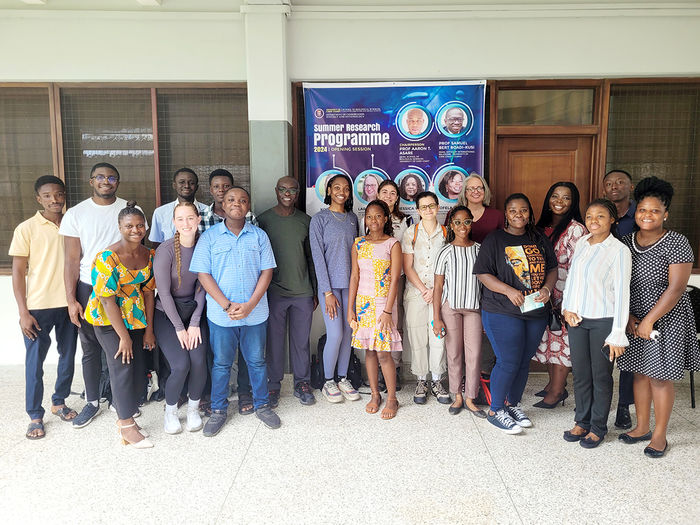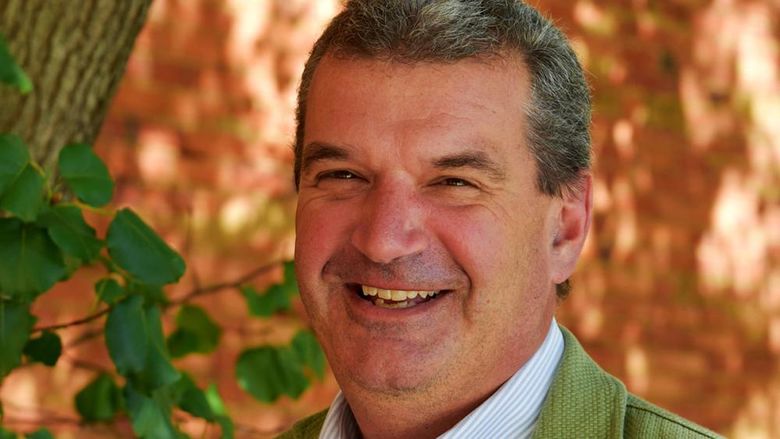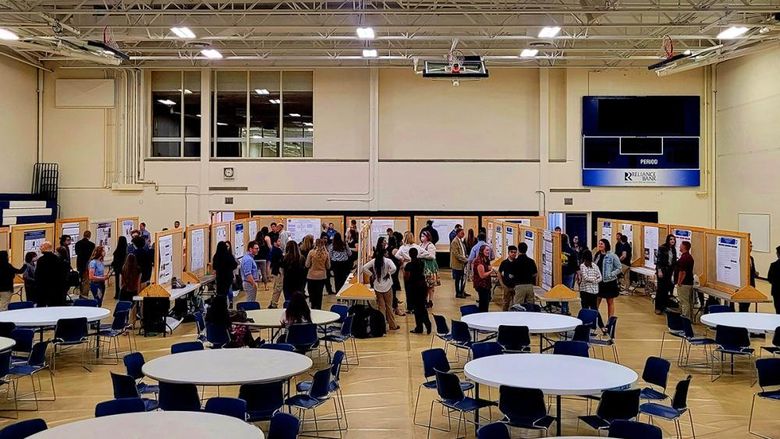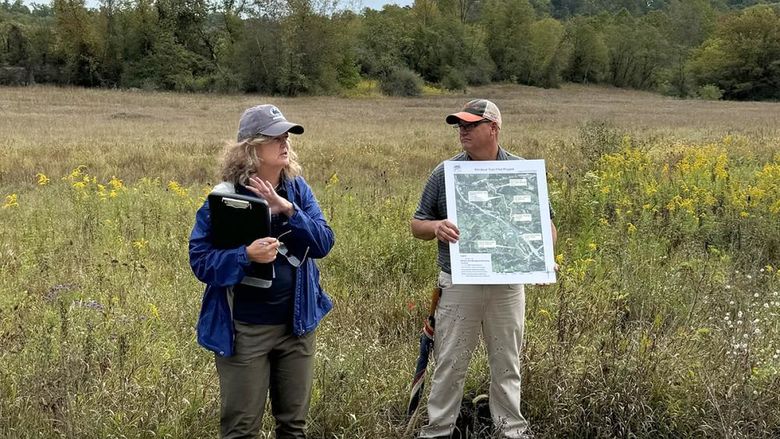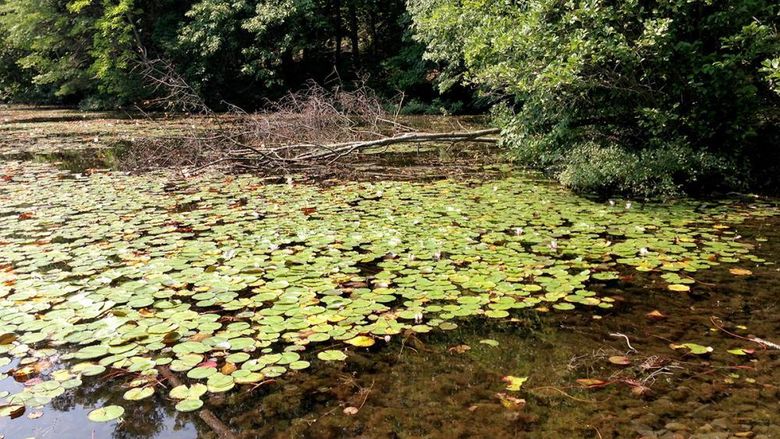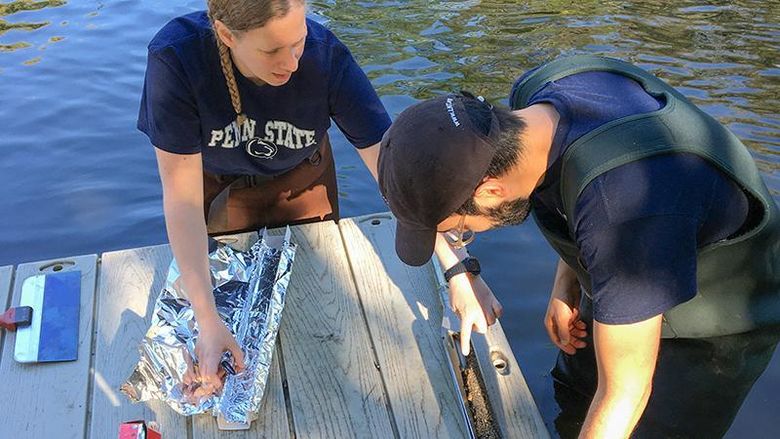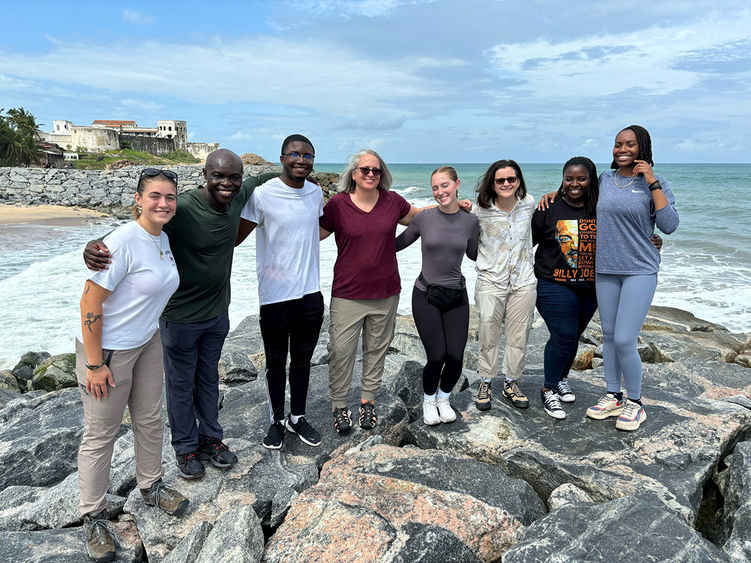
Two Penn State Altoona students and two faculty are among a group conducting research on dragonflies in Ghana, Africa, this summer. The research is taking place through the Department of Conservation Biology and Entomology of the School of Biological Sciences, at the University of Cape Coast. From left are Lou Bellinghausen, Arizona State University; Kofi Adu, Penn State Altoona; Malek Stafford, Troy University; Lara LaDage, Penn State Altoona; Eva Gates, Penn State Altoona; Lilly Blanchard, Louisiana Tech; Rachel Desulme, Penn State Altoona, in Cape Coast.
ALTOONA, Pa. — Two Penn State Altoona students and two faculty are among a group conducting research on dragonflies in Ghana, Africa, this summer.
The research is taking place through the Department of Conservation Biology and Entomology of the School of Biological Sciences, at the University of Cape Coast (UCC).
Global climate change has had profound impacts on food and water availability, habitat availability and infrastructure vulnerability, threatening biodiversity across all ecological scales, according to the researchers. West Africa is thought to be one of the world’s most vulnerable regions to the effects of anthropogenic environmental change and subsequent loss in biodiversity.
Six students from the United States, 10 from UCC and one graduate student affiliated with the American Museum of Natural History (AMNH) are spending six weeks in Ghana studying the response and adaptation of dragonflies in different climactic habitats. The aim is to engage in scientifically imperative research questions and broaden their understanding of the effects of regional and global environmental change on biodiversity.
The project also gives students the opportunity to work on a multicultural, multi-institutional research team. They will be exposed to a broad range of methodological techniques including field work, museum curation, micro-CT scanning and spectroscopy. Students will do an additional three weeks of laboratory work at the AMNH in New York City.
During the fieldwork phase, students, including Eva Gates and Rachel Desulme from Penn State Altoona, are observing and collecting data on dragonfly populations across different habitats. This hands-on experience exposes them to the intricacies of field research, including data collection techniques, ecological surveying and specimen preservation.
“The field can be, and has been, unpredictable but the students have done amazing work, exhibiting independence, flexibility and the ability to troubleshoot,” said Lara LaDage, associate professor of biology and undergraduate research coordinator at Penn State Altoona.
Outside of field work, the U.S. students have explored the history and culture of Ghana, visiting castles that served as major ports during the trans-Atlantic slave trade, learning how to shake hands, visiting local markets, learning the local dialects and eating the local cuisine. They were also invited into a home to cook a meal.
“Seeing the friendships develop between the U.S. and UCC students has been equally rewarding,” LaDage said. “I imagine these relationships could form the foundation of future collaborations among these young scientists.”
The research initiative originated in 2021 as a Fulbright research topic, eventually shaping into a collaboration between UCC, Penn State and the AMNH, supported by the U.S. National Science Foundation.
The project is headed by LaDage and her Penn State Altoona colleague Kofi Adu, professor of physics, along with Jessica Ware, AMNH, Rofela Combey, UCC, and Laura Cruz, Penn State.
